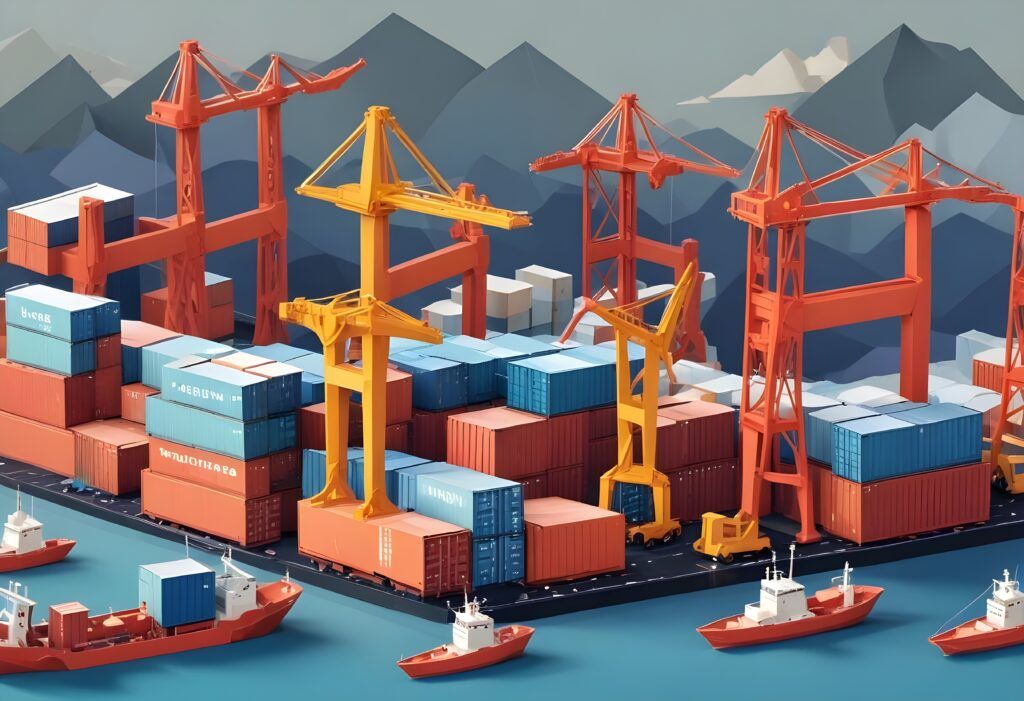With the adoption of the proposed Corporate Sustainability Due Diligence Directive (CSDDD), the European Union has once again set a milestone on the road to sustainability.
The purpose of the Directive is to "set out the rules on the obligations of companies with regard to the actual and potential adverse effects on human rights and the environment of their own activities, the activities of their subsidiaries and the activities in the value chain of entities with which they have an established business relationship, as well as on liability for non-compliance with those rules".
The new standard, once transposed into national laws, will oblige large companies to identify and, if necessary, prevent, address or mitigate negative environmental and human rights impacts of their activities at any point in their supply chain, whether through their own activities or those of their business partners.
In other words, it directly or indirectly affects the entire supply chain.

Environmental... and social sustainability
"It encompasses sustainability in the broadest sense because it no longer only takes into account aspects related to the environment, but also social aspects," stresses Francesc Bonada, head of organization and sustainability at the Port of Barcelona. "It's where the future is going, towards a more sustainable and socially just economy," he adds.
In the same vein, the spanish Platform for Responsible Business has defined it as "a historic step forward in the obligations of companies and in the protection of human and environmental rights" and has urged the Spanish government to transpose it "without delay" and to "improve key aspects to ensure its effectiveness".
Member countries now have two years to transpose the standard into their legislation.
- The first companies that will have to comply with the directive are those of considerable size and economic power (more than 500 employees and more than EUR 150 million in net turnover worldwide). Two years later, the standard will apply to companies with activities in defined high-impact sectors and with more than 250 employees and a worldwide net turnover of EUR 40 million.
- Small and medium-sized enterprises (SMEs) are not directly covered by the proposal, although they will be affected as part of the supply chain. Third-country companies with activities in EU countries and with more than 250 employees and a net worldwide turnover of EUR 40 million are directly affected.

What must companies do to comply with diligence?
The European Commission states that, in order to comply with the new standard, companies must:
- Integrate due diligence into their strategies.
- Determine actual or potential negative impacts on human rights and the environment.
- Prevent or mitigate potential negative impacts.
- Stop or minimize actual negative impacts.
- Establish and maintain a grievance procedure.
- Monitor the effectiveness of the due diligence strategy and measures.
- Communicate publicly on due diligence.
Broadly speaking, it can be said that companies should adopt appropriate measures to identify actual or potential adverse impacts on human rights and the environment in their own operations, in their subsidiaries and at the level of their direct or indirect business relationships established in their value chain.
In a statement, the commission explains that workers must have access to safe and healthy working conditions to ensure effective protection of the human rights enshrined in international conventions. It also states that companies of considerable size and economic power (more than 500 employees and more than 150 million euros in net turnover worldwide) must have a plan to ensure that their business strategy is compatible with limiting global warming to 1.5°C, in accordance with the Paris Agreement.
The obligation to establish and monitor the implementation of due diligence and to integrate it into the company's business strategy falls on the company's management, according to the directive. The aim is to ensure that, in fulfilling their duty to act in the best interests of the company, managers do not forget to take into account the human rights, climate change and environmental consequences of their decisions.
Over and above these, the national administrative authorities designated by the Member States will be responsible for monitoring these new rules and will be able to impose fines in the event of non-compliance. In addition, victims will have the opportunity to take legal action for damages that could have been avoided with appropriate due diligence measures.

The maritime sector and corporate sustainability reporting
Due to their characteristics, companies in the maritime sector are fully affected by the standard. "It affects us directly, but the sector's commitment to environmental and social aspects is great and goes back a long way," explains Francesc Bonada.
Paz Arias Carballo, a sustainability consultant, agrees: "Maritime is a sector that is very much in the spotlight and for this very reason it is very committed to sustainability and ESG (environmental, social and corporate governance) criteria. Despite the progress already made, the consultant recognizes that the implementation of the CSDDD will not be a "today-for-tomorrow" change.
The industry is already complying with the Corporate Sustainability Reporting Directive (CSRD), which came into force at the beginning of 2024. This European regulation requires annual reporting on "environmental, social and governance risks" and establishes a common framework for the disclosure of such information.
The first reports -corresponding to the 2024 financial year- will be submitted from 2025 by those organizations that were already subject to the previous Non-Financial Disclosure Directive (NFRD). In 2025, the obligation will be extended to other large companies (other listed and unlisted); in 2026, to listed SMEs with less than 250 employees; and, in 2028, to companies outside the European Union, with specific requirements.
"The ultimate goal of these two directives (CSDDD and CSRD) is transparency," concludes Paz Arias Carballo.
And, of course, all that - transparency, accountability, communication, prevention - takes work and costs money. But that's another story.








